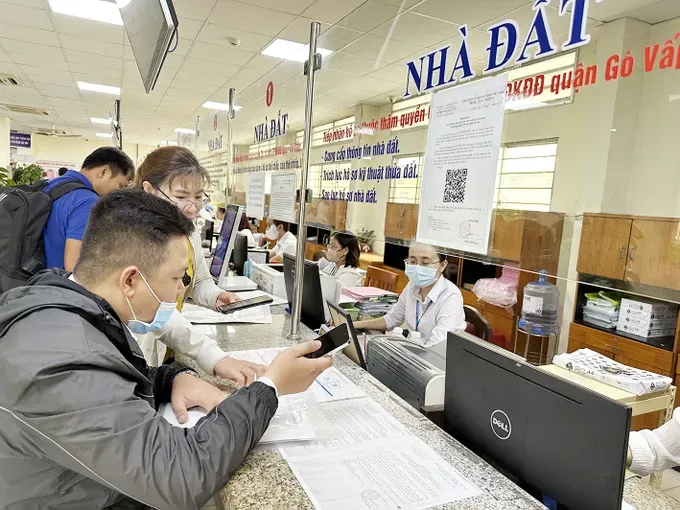
Prices soar dramatically
From 2024 to mid-2025, most newly launched housing projects in Ho Chi Minh City have been in the high-end segment, a key factor driving sharp price increases across both primary and secondary markets.
For instance, resident Thanh Van in Chanh Hung Ward shared that just over two months ago, she bought a two-bedroom unit at the Happy City apartment complex in Binh Hung Commune for VND2.05 billion (US$77,934). By September, a friend purchased a similar unit there for VND2.5 billion. Similarly, Nguyen Van Luan said he purchased a two-bedroom, 60-square-meter apartment at the Hoa Sen complex in Binh Thoi Ward earlier in 2025 for VND2.8 billion to rent out. Recently, a broker informed him that a buyer was willing to pay VND3.3 billion.
Even older apartments have not escaped the price surge. A man in Vinh Hoi Ward noted that his two-bedroom unit at The Gold View apartment, bought in 2017 for just over VND3 billion and still without a land-use certificate, now has comparable units selling for around VND8 billion.
Elsewhere in Vung Tau, older apartments have also surged. A man named Vu Dung recalled that in May 2025, he considered purchasing a 74-square-meter apartment at the Melody complex for VND2.9 billion. After hesitating for three days over a price negotiation, he missed the opportunity. Five months later, similar units were priced at VND3.3 billion–VND3.4 billion, with premium options offering sea or mountain views, or high-end furnishings, going for up to VND3.6 billion–VND3.8 billion.
Another buyer, Nguyen Thi Nga, purchased a 70-square-meter unit at the Gateway project in Tam Thang Ward in April 2025 for VND2.85 billion. Though a buyer proposed to buy her flat at VND3.3 billion recently, she decided not to sell - an example of why prices continue to rise while transaction volumes stagnate.
According to Le Minh Duc, Head of Le Minh Duc Notary Office in Tam Thang Ward, few property transfer contracts have been notarized in recent months. From May to date, the number of cases has remained unchanged, though the declared transaction values in contracts have increased. For example, on October 7, out of 38 notarized contracts, seven involved real estate. Two of them were apartment gifts, three were land-use right gifts, and two were land-use transfers.
The supply of affordable housing is improved
From a business standpoint, Le Viet Lien, General Director of Ba Ria–Vung Tau Housing Development Company, explained that soaring apartment prices mainly stem from limited supply and the absence of new projects entering the market. New developments have been delayed due to procedural and legal bottlenecks. To regulate the market, he said, authorities must resolve legal obstacles in residential projects and accelerate social housing construction.
Chairman Tran Van Chau of the Board of Directors at Cho Lon Real Estate showed the concern. He revealed that the company has a one-hectare site cleared for a residential project, including a social housing section. Although the 1/500-scale zoning plan was approved, it remains inconsistent with the 1/2000 master plan, so the company must adjust it. After more than 15 years, the project is still on hold.
Economist Dr. Huynh Thanh Dien added that real estate remains a favored investment channel, with some speculators artificially inflating prices through market sentiment. He suggested that appropriate tax policies would be an effective tool to curb speculation, reduce housing costs, and help genuine home buyers find suitable accommodation.
The Ministry of Construction’s real estate report of the third quarter also acknowledged this market imbalance. Apartment prices in major cities like Hanoi and Ho Chi Minh City remain high due to land shortages, rising input costs, slow legal processes, and modest profit expectations from developers.
In response, the Ministry outlined several key measures including refining institutional and legal frameworks governing housing, real estate business, land, planning, investment, construction, credit, and taxation to ensure coherence; minimizing administrative procedures; enhancing decentralization; and revising land-use fee regulations. Most importantly, authorities aim to boost housing segments priced within reach of average-income earners.
In reality, Vietnam’s real estate market has long developed out of balance. Now is the time for coordinated, effective government intervention to stabilize the market, support genuine buyers, and contribute to sustainable economic growth.
























